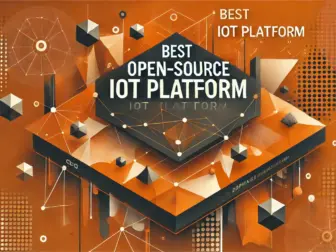Tag - IoT databases
The Importance of IoT Databases in the Age of Connected Devices
The Internet of Things (IoT) has revolutionized the way we live and work by connecting devices and systems to the internet, allowing them to communicate and share data in real-time. This interconnected network has led to an explosion of data being generated and collected by various devices, ranging from smart home appliances to industrial machinery. As the volume of data continues to grow, the need for efficient and reliable IoT databases has become increasingly important.
IoT databases play a crucial role in storing and managing the vast amounts of data generated by connected devices. These databases are specifically designed to handle the unique characteristics of IoT data, such as high velocity, variety, and volume. Traditional relational databases are ill-equipped to handle the scale of data generated by IoT devices, which is why specialized IoT databases have emerged to meet this growing demand.
One of the key features of IoT databases is their ability to handle time-series data, which is a common type of data generated by IoT devices. Time-series data is a sequence of data points collected at regular intervals over time, such as temperature readings, sensor data, or GPS coordinates. IoT databases are optimized to efficiently store and query time-series data, making them ideal for analyzing trends and patterns in IoT data.
Another important aspect of IoT databases is their ability to support distributed data processing. In a typical IoT deployment, data is generated and collected from thousands or even millions of devices spread across different locations. IoT databases are designed to distribute data processing and storage across multiple nodes, allowing for scalable and high-performance data processing in a distributed environment.
Security is also a major concern when it comes to IoT data, as sensitive information collected by connected devices can be vulnerable to cyber-attacks. IoT databases offer built-in security features, such as encryption, authentication, and access control, to protect data from unauthorized access and ensure data integrity. By implementing robust security measures, IoT databases help to mitigate the risks associated with data breaches and protect the confidentiality of IoT data.
In addition to storage and security, IoT databases also play a crucial role in enabling real-time analytics and insights from IoT data. By processing and analyzing data in real-time, organizations can extract valuable insights from IoT data and make informed decisions based on up-to-date information. IoT databases offer advanced analytics capabilities, such as machine learning algorithms and predictive analytics, to help organizations uncover patterns and trends in IoT data and drive business outcomes.
Overall, IoT databases are essential for managing the vast amounts of data generated by connected devices and enabling real-time analytics and insights. As the Internet of Things continues to expand and evolve, the importance of IoT databases in facilitating data storage, security, and analytics will only continue to grow. Organizations that leverage the power of IoT databases will be better equipped to harness the full potential of IoT data and drive innovation in an increasingly connected world.

